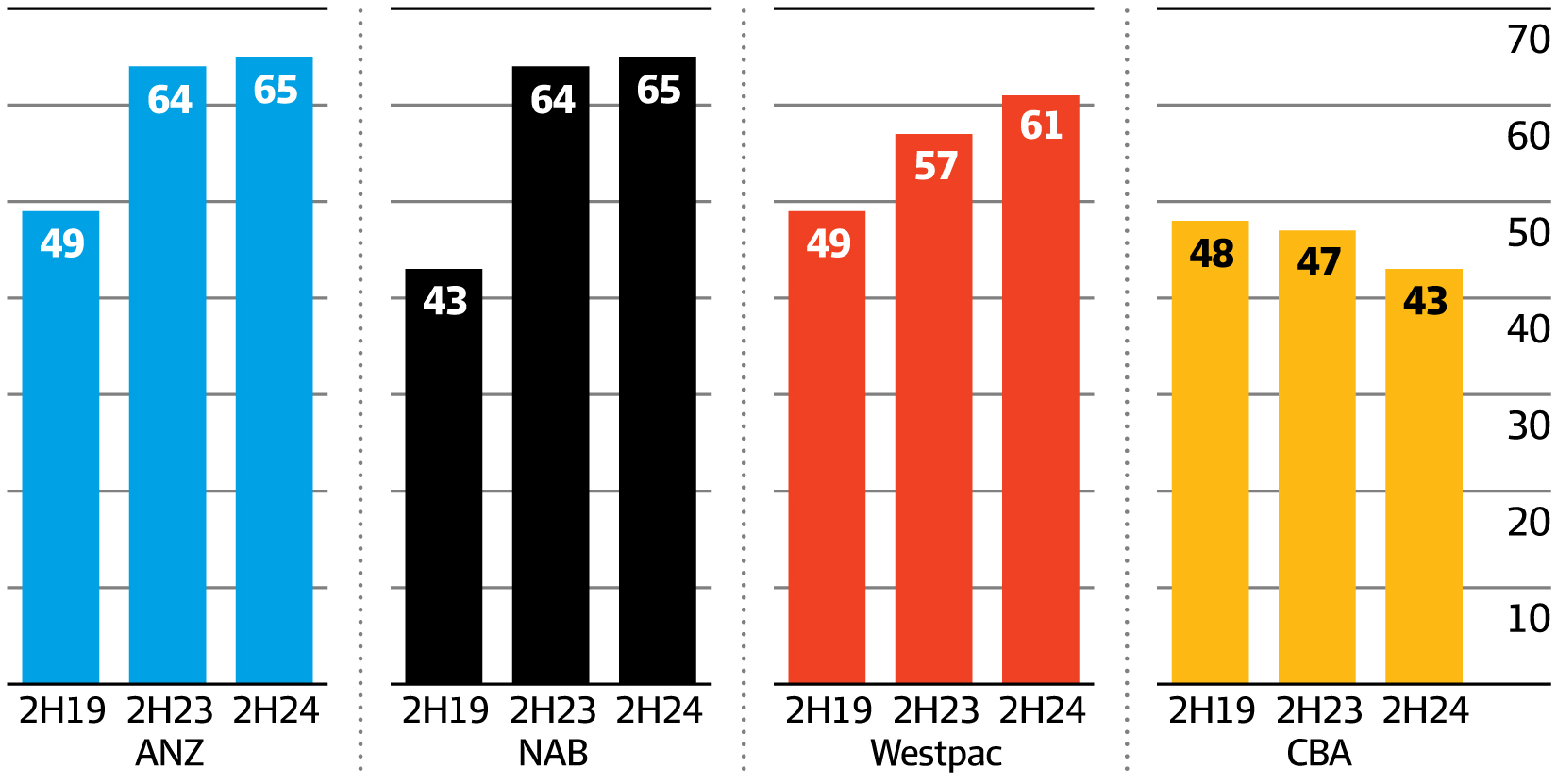Two separate articles in the AFR with opposing industry dynamics. Either case mortgages looking more and more commoditized. Not sure what to make of that - obviously this leaves out the non banks.
1) Positive for brokers and gaining share - Inside the unstoppable rise of the country’s mortgage brokers (afr.com) -
According to the Mortgage & Finance Association of Australia’s Industry Intelligence Service Report, brokers are now making $181,199 in average gross annual earnings, more than double the median salary for a full-time worker. (By way of comparison, two decades ago, the average broker was earning about $65,000, at a time when the median income was $40,000.)
According to the MFAA’s report, Australia boasted 19,456 mortgage brokers last year, an increase of 871 compared with the previous year. Their average gross annual earnings of $181,199 in the six months between October 2022 and March 2023 was made up of annual upfront commissions per broker of $108,103, while average annual trail commissions per broker came to $73,096.
But top mortgage brokers are earning much more.
According to the Mortgage Professional Australia’s Top 100 Brokers of 2023 – based on the value of loans in the 12 months to the end of June – the average written by the country’s leading mortgage brokers was $175 million. But the top-rated mortgage brokerage wrote $457 million of residential loans.
Based on the standard broker commission rates, this suggests the average income of mortgage brokers in the Top 100 is close to $2 million, and that the top mortgage brokerage operations are earning between $5 million and $6 million.

2) CBA fighting back CBA shares: Commonwealth Bank preps new digital mortgage amid broker battle (afr.com)
Commonwealth Bank will launch a new digital-only mortgage product that will push in-house lending at the expense of less profitable broker-originated loans, igniting frustration within the industry about the major bank cutting brokers out of deals.
Known in the industry as channel conflict, major lenders are going straight to customers threatening to leave for a rival, even after they had already engaged a mortgage broker to find the best deal, brokers say. The customers are offered a better rate than those available to the brokers which, if accepted, means brokers do not earn their commission.
